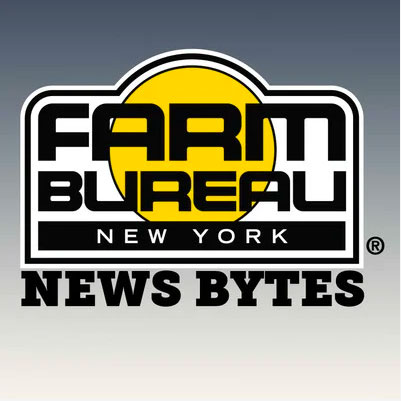Coalition Opposes Pesticide Ban
More than five dozen organizations sent a letter opposing the “Birds and Bees Act” to state leaders. The bill would remove critical risk management tools on farms and increase less environmentally friendly practices.
New York Farm Bureau and a large coalition of farm groups, agribusiness, and supporters wrote to Gov. Hochul and legislative leaders asking them to let the Department of Environmental Conservation and its science be the guide when reviewing and regulating pesticides in the state. In addition, the letter calls for a rejection of the Birds and Bees Act (S.1856/A.3226) that would set a threatening precedent by legislating a ban of an entire class of pesticides that has led to more environmentally friendly practices in caring for the land and pollinators.
The letter explains how the ban of neonicotinoids would put farmers, landscapers, golf courses, and more at a serious disadvantage in fighting off pests. It would also expose the land to greater tillage to battle pest infestation. This would, in turn, reduce climate smart farming practices that sequester carbon, making it harder for New York State to meet sustainability goals.
“Without treated seed and applications of crop protectants, farmers would revert to planting fewer cover crops to avoid losses to seed Corn Maggot and other pests. Removing these tools would impact the state’s carbon footprint, requiring additional tractor passthroughs and products to be applied,” read the letter, in part.
The letter also highlights that neonicotinoids represent one of the most significant advances in insecticide technology in recent history and are among the safest pesticides for people and the environment, hence their widespread adoption. In addition, it stresses how seed coating technology mitigates pesticide exposure to pollinators due to the application method and subsurface planting of the crop protectant.
“When used according to label instructions, neonicotinoid products can be used safely by applicators, and they offer unique benefits that make them ideal tools for addressing certain pest problems and as part of an Integrated Pest Management program,” said in the letter.
Currently, the New York State Department of Environmental Conservation and its experts have the authority to review and regulate all pesticides in the state, one of the few states to have a stricter regulatory protocol than federal EPA oversight. In addition, New York State has implemented a strong pollinator protection plan coinciding with the nation leading Integrated Pest Management program. The coalition believes this oversight should remain rather than allowing politics to play a role in determining what is best for our food supply and environment.
Click here to read the full letter.



